School of Architecture Announces New Faculty
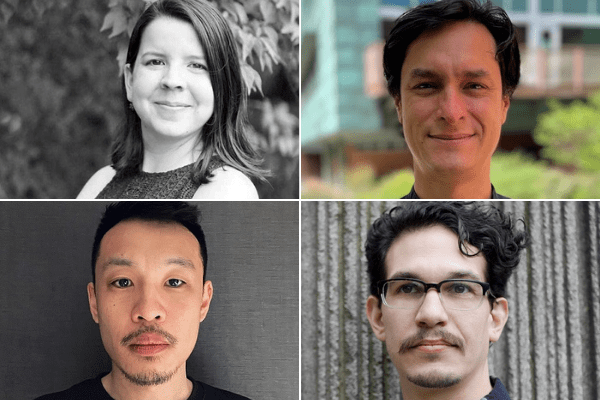
The School of Architecture will welcome four new faculty members in the upcoming academic year. Matthew Gin and Jonathan Dessi-Olive will join the faculty in tenure-track positions. Elena Vazquez-Peña and Julio Diarte will join as visiting scholars with two-year appointments. All will begin teaching this fall.
Assistant Professor of Architectural History Matthew Gin is a historian of 18th-century European architecture and visual culture. Of particular focus in his scholarship are actors, objects, and forms of expertise that sat on the edges of architectural practice in the early modern period. His current book project, Paper Monuments: The Politics of Ephemeral Festival Architecture in Enlightenment France, is an expanded material and cultural history of temporary pageant decorations from the 17th century to the French Revolution.
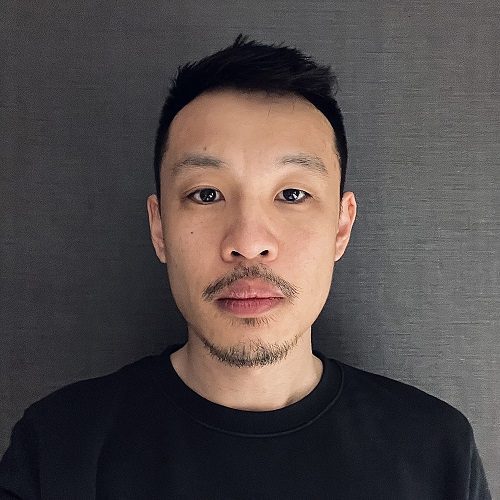
Gin’s research has received awards from the Society for Court Studies and the Historians of Eighteenth-Century Art and Architecture. Most recently, he was named an inaugural IDEAS Research Fellow at the Society of Architectural Historians. Forthcoming publications will appear in Renaissance Quarterly, The Court Historian, and the edited volume Material Cultures of the Global 18th Century: Art, Mobility and Change (Bloomsbury Academic).
Gin holds a PhD in Architectural History from Harvard University, an MED in Architectural History from Yale University, and a BA in Art History and BM in Baroque Flute from Oberlin College. Previously he worked at the Museum of Modern Art and the Frank Lloyd Wright Trust.
“Matthew has the ability to translate seemingly esoteric areas of interest into material that is alive, fresh, and relevant, while retaining archival grounding, rigor, and depth,” said SoA Director Blaine Brownell. “With his impressive education in both music and art history, in addition to architecture, he embodies the interdisciplinary vision of the College of Arts + Architecture will make wonderful contributions to both the School and the College as a whole.”
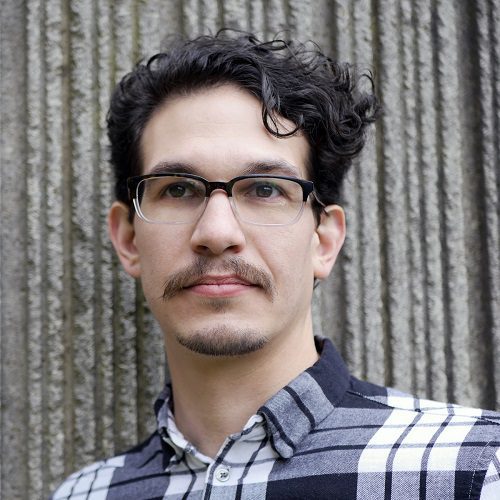
Coming to UNC Charlotte from Kansas State University, where he was an assistant professor in the Department of Architecture, Jonathan Dessi-Olive, joins the SoA as Assistant Professor in Building Technology + Design Integration. Prior to joining Kansas State, he was the inaugural Ventulett NEXT Fellow at the Georgia Institute of Technology School of Architecture, 2017-19.
In his role as an assistant professor, Dessi-Olive will teach architecture design studios, structures, and construction research seminars that take a critical approach to technology. He is also the director and founder of the MycoMatters Lab, a design and research practice that develops novel applications of fungi-based materials in structural design, architectural acoustics, and sculpture. Through interdisciplinary collaborations with architects, artists, engineers, biologists, farmers, economists, and students, the Lab’s work contributes to the broad disciplinary areas of sustainable building technology, architectural acoustics, and computational design.
Dessi-Olive received a Master of Science in Design and Computation (SMARCHS) from the Massachusetts Institute of Technology, a professional Master of Architecture from The University of Pennsylvania, and a B.S. in Architecture from the University of Minnesota. His research has been published by the International Association of Shell and Spatial Structures (IASS), the Acoustical Society of America (ASA), the Symposium for Simulation in Architecture and Urban Design (SimAUD), and the Conference for Nonconventional Materials and Technologies (NOCMAT). His design and construction work has been exhibited in public venues such as the Venice Architecture Biennale, TEDxPenn, the Center for Architecture in New York City, Beach Museum of Art, and The University of Virginia.
Julio Diarte and Elena Vazquez-Peña join the SoA as visiting scholars in emerging technology and design.
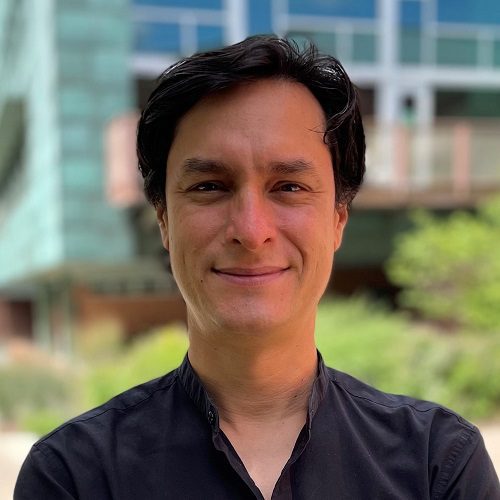
Diarte is an architect, researcher, and educator from Paraguay. His research interest intersects the areas of design for climate change, community engagement, craft, digital fabrication, and material processes. In his doctoral research, he experimented with craft and digital-based methods and tools to reuse urban waste as a construction material for low-cost and sustainable architecture. In his teaching, Diarte engages students in the development of material-based projects combining low and high-tech tools to design and prototype building elements to develop students’ critical-making skills.
Diarte received the 2020 Engineering for Change (E4C) Research Fellow in Habitat and 2022 E4C Expert Fellowship and the 2019-20 and 2022 College of Arts and Architecture Sustainability Faculty Teaching Fellow and 2019 John Row Sustainability Champion Award at Penn State. His research has been published in peer-reviewed conference proceedings and journals about architecture, computational design, and circular economy, including 2022, 2020, and 2019 ARCC, 2018 and 2020 CAADRIA, and 2019 CAD Futures. His work, “Tapping into Urban Recycling for Low-cost/No-cost Housing Solutions: Using Waste Cardboard to Build & Sustain the Resilient City,” has been showcased at the 2021 Seoul Biennale of Architecture and Urbanism. Other areas of inquiry include the study of design principles and architectural practice in mid-20th century Latin American architecture, with particular attention to Modern Architecture in Paraguay.
Diarte holds a Ph.D. in Architecture from Penn State University with a focus on computational design and material processes (2021), a master’s degree in architecture from Barcelona Tech (2009), and a bachelor’s degree in architecture from the National University of Asunción (2005).
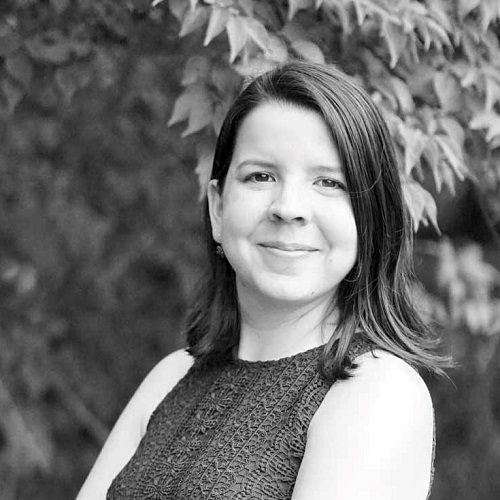
Vazquez is a computational designer, researcher, and educator. Her research focuses on smart materials for adaptive buildings, developing digital workflows for new materials in architecture with a performance-based approach. Her work has been supported by the American Institute of Architects Upjohn Research Initiative Grant and the Architectural Research Centers Consortium. Her interdisciplinary work bridges material science and computational design and has won awards such as the Rustum and Della Roy Innovation in Materials Research Award.
Before pursuing graduate degrees at Penn State University, she obtained her professional degree in Architecture from the Universidad Nacional de Asunción. There, she founded an architecture studio with her partner and worked on the detailed design and construction supervision of several housing projects. Her master’s work, “Perforated Masonry Walls: Creating a digital framework for optimizing environmental performance through shape configuration,” was recognized with the “Distinguished Master’s Thesis Award,” an acknowledgment of excellence in master’s thesis research. In Spring 2018, she received the ARCC King Medal for Excellence in Architectural and Environmental Research.
Vazquez holds a Ph.D. in Architecture (Design Computing), a Master of Science in Architecture, and a graduate certificate in Additive Manufacturing from Penn State. In addition, she has extensively published in computer-aided architectural design proceedings, including eCAADe, Sigradi, Caadria, and CAADFutures, and in peer-reviewed journals. Vazquez was a 2016-2018 Fulbright scholar, a 2020-2021 Waddell Biggart Graduate Fellow, and a 2021-2022 Freiburg Rising Star.
“These three new faculty members will contribute significantly to the SoA’s areas of distinction in regenerative systems design, emergent material practices, and the computed environment,” said Brownell. “They also all support our School’s emphasis on the goals of design and technology integration, climate-focused research, teaching excellence, and the consideration of a more diverse set of global practices.”